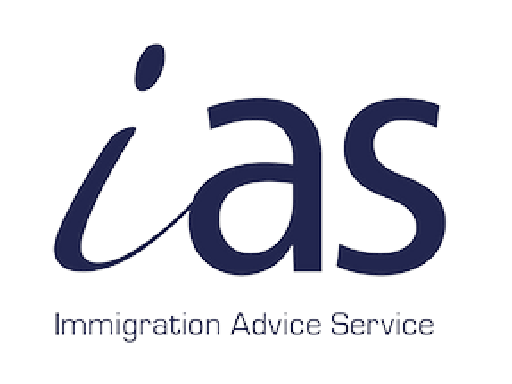Introduction To UK Children’s Law
View the Introduction to UK Children’s Law Training course dates below, delivered on Microsoft Teams.
Got a question? Contact our training team on: 0333 305 9460
Request a call back from our Training Team

Introduction To UK Children’s Law
This comprehensive training course explores the legal principles and frameworks governing child and family law in the UK, with a focus on contemporary and emerging issues.
Participants will gain a robust understanding of the legal mechanisms that safeguard children’s welfare, resolve disputes, and address emerging issues in child and family law. This course provides practical knowledge to navigate complex cases and informs future decision-making in legal and policy contexts.
This course is ideal for legal professionals, social workers, academics and those who engage with child welfare, family disputes, and related legal matters. It is particularly valuable for those seeking to deepen their expertise in child law and its intersection with evolving societal and technological changes.
Joining instructions and links are sent to the email address provided at registration 24 hours in advance.
No upcoming events found, please make an enquiry instead.
Make EnquiryCourse Topics:
During the course, we’ll look at:
Legal Parenthood and Parentage (Human Fertilisation Embryology Act 2008):
- Who is the Legal Parent?
- Legal Parents under ART
- Domestic and International Law of Surrogacy
- Future Advances in the Law of Reproduction (Multiple Genetic Parents, Genome Editing, Ectogenesis).
Principles under the Children’s Act:
- Welfare Principle and Statutory Welfare Checklist (s.1)
- Parental Responsibility (Children Act 1989)
- Principle of Parental Involvement (s.1(2A)
- No Order Principle (s.1(5))
Private Child Law Disputes (Children Act 1989):
- S.10 Entitlement to Apply for a Private Child Order
- S.8 Orders – Disputes between parents over child arrangements
- S. 8 Orders – Specific Issues and Prohibited Steps Orders.
Public Child Law:
- S. 31 Threshold of Harm
- The meaning of ‘serious’ harm
- The meaning of future risk
- Out of control children
- The Pool of Possible perpetrators
- Emergency Child Order and Police Powers.
Children’s Capacity and Human Rights:
- Gillick competence
- Children’s rights (ECHR and UNCRC)
- Bell v Tavistock (children and puberty blockers).
Join over 92% of satisfied customers who found their training with IAS useful and beneficial.
You will also be provided with training materials to keep after completing the course.

Benefits of Studying with IAS
Find out why our learners enjoy studying with IAS Training.
Studying with IAS means joining a structured, expertly designed learning program led by industry professionals. Experience the benefits of live, interactive classes that provide the guidance and support you need to thrive.
Our dedicated trainers are passionate about empowering learners, helping you build confidence and excel in your chosen field.

Free Course Materials

Certificate of Attendance

Live Online Course Delivery

Expert Trainers & Advice

Why Study with Immigration Advice Service?
Immigration Advice Service has been providing professional immigration services for over 10 years in the public, private and corporate sectors.
Who Should Attend:
- Law Students and Aspiring Lawyers: Those studying law who need a comprehensive introduction to the key principles and developments in Children’s Law.
- Legal Professionals: Practicing solicitors, paralegals, and legal assistants looking to refresh or deepen their knowledge in Children’s Law.
- Individuals Involved in Family Legal Matters: Those who may be going through personal situations related to Children’s Law.
What our clients are saying
Our Courses
Frequently Asked Questions
Delegates are provided with an up-to-date handbook specifically written for the course which refers to relevant sources of law. It includes chapters on:
- Statutory regulation and professional accreditation
- Immigration law
- Article 8 of the European Convention on Human Rights
- EU Law
- Asylum and International Protection
- British Nationality Law
- Appeal Rights and Administrative Review
- Professional Conduct and Ethics
The handbook can be used as a resource for daily practice and for the open-book IAA assessment tests.
Attendance on our courses provides evidence of practitioners having considered and met their CPD requirements.
Certificates of Attendance are issued which can be included in the practitioner’s CPD record.
Our courses are always up-to-date with the latest legal changes and are suitable for those who are already regulated by IAA or accredited by the Law Society but are looking to refresh their knowledge and keep up to date with the latest developments in the law.
Our Level 1 course is our introductory course. It is suitable for those who are complete beginners and for those who may have some practical experience but have not yet passed their Level 1 assessment.
Our Level 2 course is designed for those who are already in practice at Level 1 and are preparing to take their Level 2 assessment or want to understand more complex casework.
Our Level 3 course is for those who are already regulated at level 2 but are preparing to take their Level 3 assessment or want to understand how to tribunal appeals work.




















